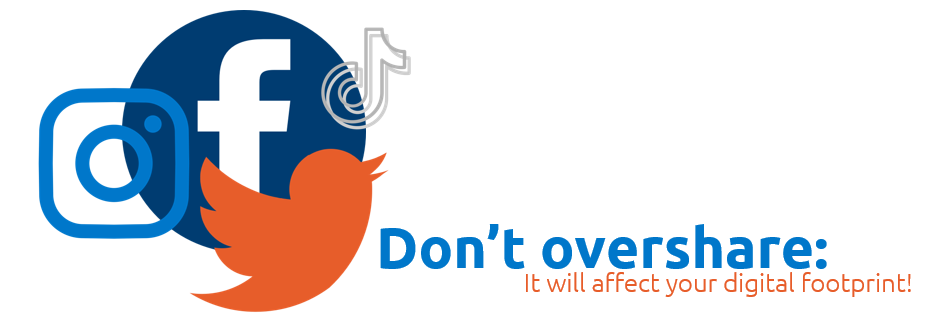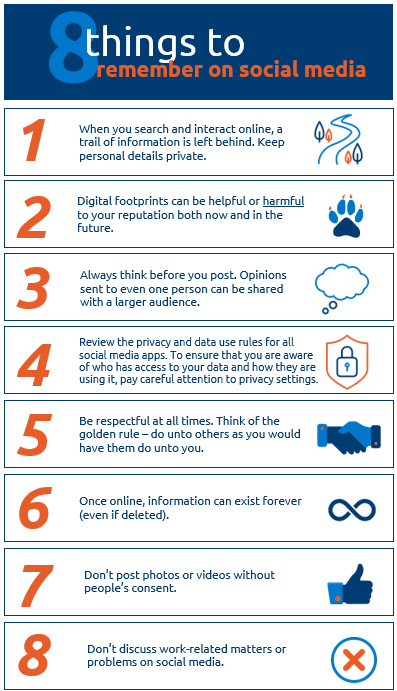Social media
Select image to view accessible version.
Our social media tell a story about us, make sure your digital footprint is positive. As articulated in a blog from the Digital Marketing Institute: "Sharing online allows you to craft an online persona that reflects your personal values and professional skills. Even if you only use social media occasionally, the content you create, share, or react to feeds into this public narrative. How you conduct yourself online is now just as important as your behavior offline."
A positive online reputation is vital in today's digital world. Like it or not, your information is out there. What you can do is help to control it and what it says about you.
Select image to view accessible version.
Social Media Security Risks
-
Personal Information
Sharing personal details such as your last name, birthday, workplace, travel plans, or even your phone carrier and credit card type can expose you to risks such as identity theft, stalking, and account hijacking. Cybercriminals use this information to build profiles, track routines, guess passwords, and target accounts - including social media, banking, and work platforms. To stay safe, rethink what you consider private and avoid posting sensitive data. Keep profiles private, limit followers to trusted contacts, and if tagging locations, do so after you’ve left.
-
Impersonation
Social media impersonation involves someone creating a fake account to pose as a person, brand, or group, often to trick followers into revealing personal information or login credentials through fake messages or giveaways. Since we tend to trust familiar names, impersonation can be surprisingly effective, leading to breaches of confidential data or reputational harm. To stay safe, verify accounts through trusted sources like official websites or verified badges, and be cautious with login pages that may be designed to steal your credentials.
-
Account Hijacking
Social media accounts are prime targets for hackers and cyberstalkers because they often contain personal data, photos, and videos. If hijacked, this information can be sold on the dark web, used to access other accounts, or held for ransom. Attackers may also share private content publicly to damage reputations or employment. To protect yourself, use strong, memorable passwords, enable multi-factor authentication, and activate email alerts for suspicious activity.


